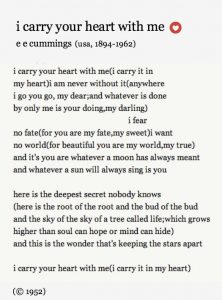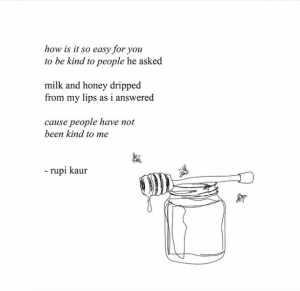In 2008 I conducted a week-long argument with an attorney about the nature of poetry. The discussion took place in a series of emails which flowed between St. Louis and Kansas City.
From the east, the contention that poetry must rhyme came in strong waves of traditional insistence. For my part, I argued the inclusion of free verse, with its rhythmic and sometimes tricky cadence. In response, my correspondent started breaking the sentences of his emails in odd places, asserting that if free verse can be considered poetry, anything can. I smiled into the computer monitor at midnight in the breakfast nook of my airplane bungalow.
Indeed, I replied. His scoff roared down I-70 into my kitchen. I replied with a laugh and an impromptu Haiku.
When people tell me that they like my writing, I tend to shrug. I don’t deserve much credit. The words tumble unbidden. I have to bribe myself not to write; to clean house, or read, or mingle somewhere in the outside world other than the place at which I work. I’d rather be writing. I stand on my deck watering the plants, distracted by sentences marching through my brain. I drag myself from sleep to record a blog entry that has composed itself in my dreams.
As a child, I got lost in the copy on the backs of cereal boxes. I read billboards bottom to top. I corrected the grammar in magazine articles. I once edited a piece from the St. Louis Post-Dispatch and sent the red-lined cutting to its author. He never thanked me but I felt sure my effort helped. Years later, I had to discontinue the Kansas City Star when the lame writing infuriated me more than the absence of local news stories over breakfast.
Beautifully crafted paragraphs hold my attention more than most human conversation. I argue with the radio. We don’t dangle prepositions because the important word should come last! I compose e-mails to NPR commentators to protest their substitution of “may” (permissive) for “might” (conditional). I correct myself. I edit text messages. I delete confused passages in electronic communiques. I have written hundreds of pages online. I share what I write without hesitation. Sometimes I hit the “publish” button with a visible flourish. I know when I’ve hit the mark.
But I don’t write poetry. I tried my hand at verse during high school and college. I showed my poems to a friend almost forty years ago. He cast them aside with a little grimace. I didn’t need further commentary. His reaction confirmed my own suspicions. I’m no poet.
But that St. Louis lawyer had one thing right. Anything can be poetry. If words flow like clear water over rocks coming down from a mountain, that’s poetry. If they nourish your soul, that’s good poetry. If they sear themselves into your heart, that’s magic.
I don’t know why I’m telling you this. As I said, what I put on these pages writes itself, demanding that I record with sufficient rapidity to retain the whole. Something about poetry begs to be unveiled. I suppose my brain yearns to prod yours awake to the wonder of deftly crafted gems of structured narrative. So here I will introduce you to some of my favorite poems, each different, each a perfect nugget. Please enjoy.
It’s the eighteenth day of the ninety-first month of My Year Without Complaining. Life continues.
Fire and Ice
By Robert Frost
Some say the world will end in fire,
Some say in ice.
From what I’ve tasted of desire
I hold with those who favor fire.
But if it had to perish twice,
I think I know enough of hate
To say that for destruction ice
Is also great
And would suffice.
Jenny Kissed Me
By Leigh Hunt
Jenny kissed me when we met,
Jumping from the chair she sat in;
Time, you thief, who love to get
Sweets into your list, put that in!
Say I’m weary, say I’m sad,
Say that health and wealth have missed me,
Say I’m growing old, but add,
Jenny kissed me.
There Will Come Soft Rains
By Sara Teasdale
There will come soft rains and the smell of the ground,
And swallows circling with their shimmering sound;
And frogs in the pools singing at night,
And wild plum trees in tremulous white,
Robins will wear their feathery fire
Whistling their whims on a low fence-wire;
And not one will know of the war, not one
Will care at last when it is done.
Not one would mind, neither bird nor tree
If mankind perished utterly;
And Spring herself, when she woke at dawn,
Would scarcely know that we were gone.

